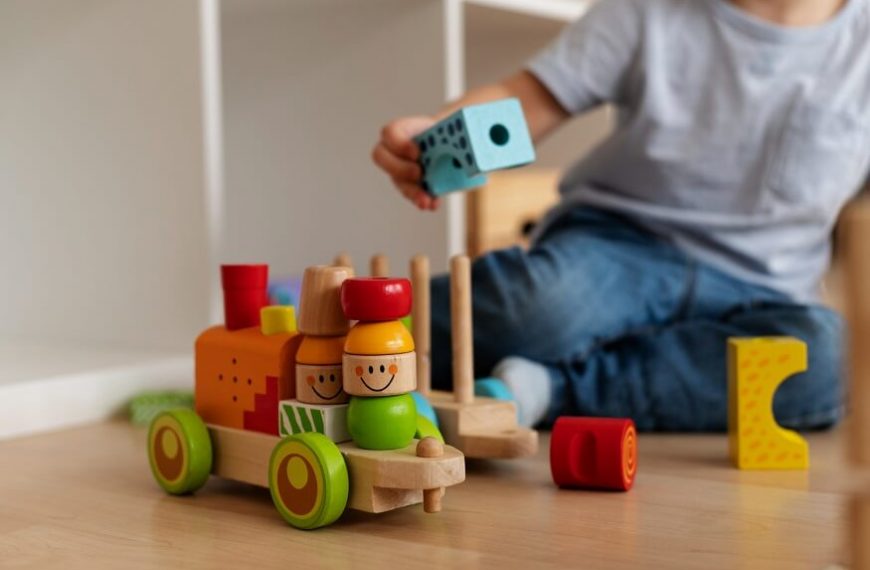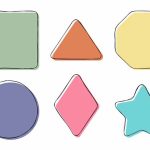In the world of early childhood education, Montessori has emerged as a leading approach that prioritises hands-on, child-centred learning. Dr. Maria Montessori’s principles have influenced educators worldwide, and the selection of appropriate toys is a vital aspect of this educational philosophy. Montessori wooden toys, with their aesthetic appeal and developmental benefits, have become a popular choice for fostering independent exploration and cognitive growth in toddlers. In this blog, we will delve into the top 15 Montessori toys for toddlers, while exploring the beauty and benefits they bring to a child’s learning journey.
Examples make learning engaging and meaningful. Take, for instance, the use of wooden blocks. These versatile toys allow toddlers to unleash their creativity by constructing towers, bridges, or even imaginary cities. As they experiment with stacking, balancing, and problem-solving, they enhance their fine motor skills and spatial awareness. Additionally, imagine the joy on a child’s face as they complete a wooden puzzle, triumphantly placing the last piece to create a beautiful picture. These are just a glimpse of the countless ways Montessori toys inspire and stimulate a toddler’s development.
Wooden Blocks
Wooden blocks are the building blocks of imaginative play. Children can explore concepts of balance, symmetry, and engineering as they construct various structures. The sensory experience of holding the smooth, natural wood in their hands adds a tactile dimension to their play. From simple towers to intricate designs, wooden blocks provide limitless possibilities for open-ended play.
Shape Sorters
Shape sorters are an engaging tool for toddlers to refine their hand-eye coordination and problem-solving skills. With a wooden board and corresponding cut-out shapes, children learn to match and fit each shape into its proper place. This activity enhances their cognitive development, spatial awareness, and understanding of geometric concepts.
Nesting and Stacking Toys
Nesting and stacking toys offer endless opportunities for exploration and discovery. Toddlers can experiment with different-sized cups, rings, or boxes, learning about size relationships, sequencing, and cause-and-effect relationships. These toys also promote fine motor skills as little hands carefully stack and unstack the pieces.
Puzzles
Wooden puzzles are excellent tools for honing a toddler’s logical thinking and problem-solving abilities. By manipulating and fitting together the puzzle pieces, children improve their cognitive skills, shape recognition, and hand-eye coordination. Puzzles provide a sense of accomplishment and encourage perseverance as children work towards completing the picture.
Shape and Color Matching Games
Shape and colour matching games introduce toddlers to early concepts of categorization and discrimination. Montessori toys that focus on matching shapes or colours help children develop their visual perception, concentration, and logical reasoning abilities. These games encourage children to observe and compare different attributes, fostering critical thinking skills.
Sensory Bins
Sensory bins offer a captivating and tactile experience for toddlers. By filling a shallow container with materials like rice, sand, or water beads, and adding scoops, cups, and small toys, children engage in sensory play. Sensory bins stimulate their senses of touch, sight, and hearing, while also promoting fine motor development and sensory integration.
Threading and Lacing Toys
Threading and lacing toys are wonderful for enhancing fine motor skills and hand-eye coordination. Wooden beads or blocks with holes can be threaded onto strings or laces, challenging toddlers to focus and manipulate small objects. As they thread and lace, children develop their concentration, patience, and dexterity.
Object Permanence Boxes
Object permanence boxes introduce toddlers to the concept that objects continue to exist even when they are out of sight. These Montessori toys typically feature a small opening where objects can be dropped and a drawer for retrieval. By repeatedly dropping objects and discovering their reappearance, children strengthen their understanding of object permanence and improve their hand-eye coordination.
Musical Instruments
Music is a universal language that sparks joy and creativity. Musical instruments, such as xylophones or drums, encourage rhythmic exploration and auditory stimulation. Toddlers can experiment with different sounds, rhythms, and patterns, fostering their creativity, sensory development, and appreciation for music.
Sorting and Counting Trays
Sorting and counting trays introduce mathematical concepts to toddlers through hands-on activities. These trays often include small items like buttons, beads, or seeds that can be sorted by colour, shape, or quantity. Sorting and counting exercises enhance a child’s mathematical thinking, fine motor skills, and logical reasoning abilities.
Open-Ended Play Materials
Open-ended play materials stimulate a toddler’s creativity, imagination, and independent thinking. Items like wooden blocks, scarves, or natural materials such as pinecones or shells offer limitless possibilities for play and exploration. These toys empower children to use their imaginations, solve problems, and invent new games or scenarios.
Nature Exploration Kits
Nurturing a connection with nature is integral to Montessori education. Nature exploration kits, equipped with magnifying glasses, field guides, and small containers for collecting treasures, inspire curiosity and observational skills. These kits encourage children to explore the natural world, fostering an appreciation for the environment and promoting a sense of wonder.
Dress-Up and Pretend Play
Dress-up and pretend play allow toddlers to step into different roles and unleash their imaginations. Simple costumes, dolls, and play kitchens provide opportunities for role-playing, storytelling, and social skill development. Through pretend play, children can express their emotions, practice empathy, and develop their language skills.
Art Supplies
Art supplies offer a creative outlet for self-expression and fine motor development. Crayons, markers, and modelling clay allow toddlers to explore colours, shapes, and textures. Engaging in art activities promotes sensory exploration, hand-eye coordination, and nurtures a child’s imagination and confidence.
Balance Boards
Balance boards provide a dynamic and engaging way to enhance a child’s physical coordination and balance. Toddlers can rock, balance, or even transform the boards into slides for their toys. Using balance boards improves gross motor skills, core strength, body awareness, and coordination.
Conclusion
Choosing the right toys for toddlers is crucial for their overall development and love for learning. Montessori wooden toys have gained immense popularity due to their aesthetic appeal and developmental benefits. The top 15 Montessori toys for toddlers offer a rich array of opportunities for children to explore, create, and learn independently. From building blocks to balance boards, each toy nurtures different aspects of a child’s cognitive, physical, and social-emotional development.
As you embark on your child’s Montessori journey, consider EuroKids, a leading preschool chain in India that embraces the Montessori approach. EuroKids offers a safe and nurturing environment where children can thrive and explore their full potential through a blend of Montessori methodology and modern learning techniques.
So, empower your toddler’s learning journey with Montessori toys, and witness the joy and growth that come with hands-on, child-centred play. Let’s pave the way for a brighter future, one Montessori toy at a time.















